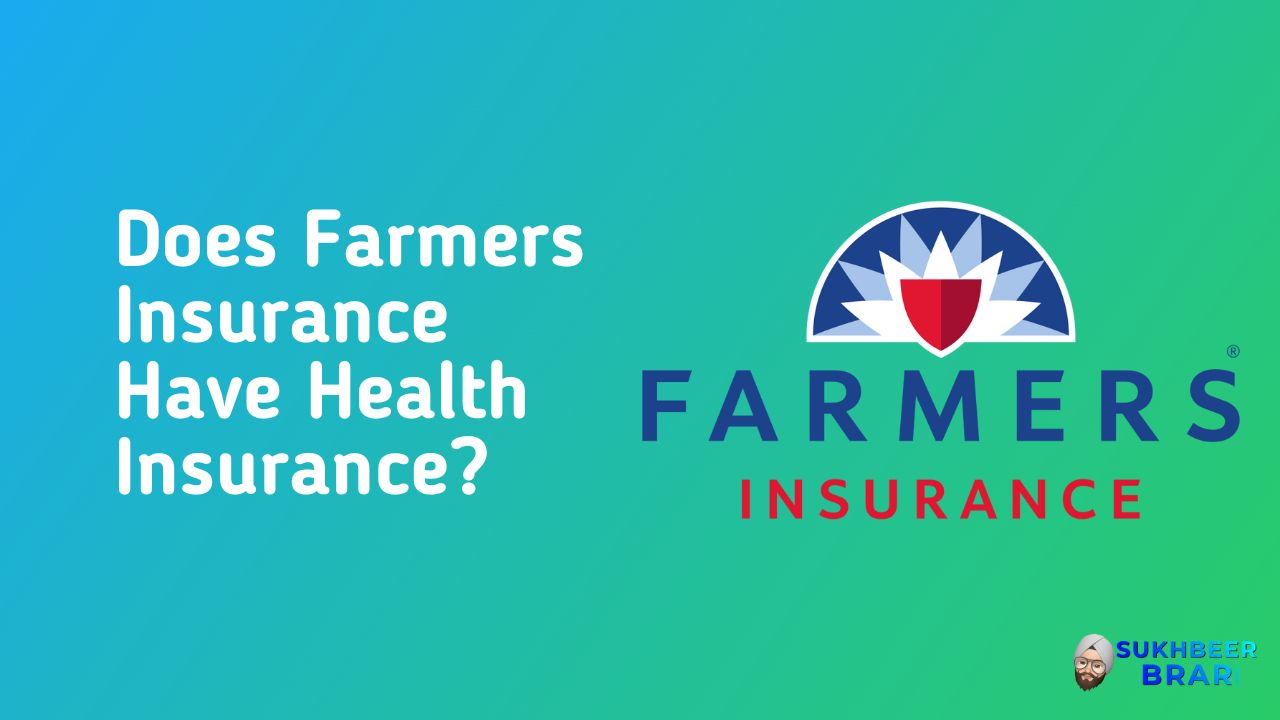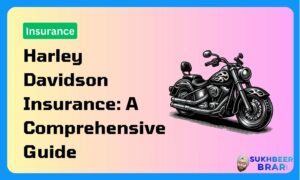Farmers Insurance provides a wide range of insurance products but is best known for auto, home, and small business insurance coverage. Founded in 1928, Farmers Insurance has grown into one of the largest insurers in the United States with over 19,000 agents nationwide.
While Farmers Insurance offers comprehensive policies for auto, home, renters, business owners, farms and ranches, recreational vehicles and more, they do not provide health insurance plans. Health insurance is a complex industry that involves managing risk pools, negotiating costs with healthcare providers, and meeting regulatory requirements. Most major health insurance companies specialize in this field alone.
Having quality health insurance is an important part of any financial plan. Healthcare costs are increasingly expensive in the United States, so having insurance to help pay medical bills can prevent major financial issues. Health insurance also provides access to preventive care, prescription drugs, mental health services and more. Whether an individual obtains health insurance through an employer, Medicare, Medicaid or directly from a private insurer, this coverage is essential for protecting both physical and financial wellbeing.
Farmers Insurance Offerings
Farmers Insurance provides a wide range of insurance products to both individuals and businesses. Some of their main insurance offerings include:
- Auto Insurance – Farmers is one of the largest writers of auto insurance in the country. They offer standard auto policies as well as specialized policies like classic/collector car insurance, RV insurance, motorcycle insurance, and commercial auto insurance.
- Home Insurance – Farmers provides insurance for homeowners, renters, condo owners and landlords. This includes coverage for the structure, personal possessions, loss of use, personal liability and more.
- Life Insurance – Term life, whole life, universal life and annuities are available from Farmers. They offer customized life insurance solutions.
- Business Insurance – Farmers provides general liability, professional liability, commercial auto, workers compensation, commercial property, and umbrella insurance for businesses.
- Specialty Insurance – Farmers also offers specialized policies like surety bonds, E&O insurance, inland marine insurance and more tailored for specific industries and business needs.
Some of the key specialties and focus areas of Farmers Insurance include:
- Auto Insurance – This is one of their largest insurance lines with extensive expertise particularly around RV insurance, motorcycle insurance and classic car insurance.
- Home Insurance – Farmers has deep knowledge around property risks and coverage for homeowners, renters, condos, and landlords.
- Small Business Insurance – Farmers provides customized insurance packages for a wide range of small to mid-size businesses.
- Specialized Insurance – Unique insurance offerings for niche industries and needs like golf cart insurance, liquor liability, cyber insurance, and more.
Their wide range of insurance products combined with expertise in key specialty areas has helped Farmers become one of the leading property and casualty insurers in the United States.
Farmers Insurance and Health Coverage
Farmers Insurance is focused on providing quality coverage for auto, home, life, business and more. However, Farmers does not offer health insurance plans.
There are a few key reasons why Farmers Insurance does not provide health coverage:
- Specialized expertise – Health insurance is an incredibly complex and specialized field that requires dedicated expertise. Farmers prefers to centralize its efforts on what it does best – property and casualty insurance.
- Regulatory compliance – Offering health plans comes with a host of regulations like HIPAA compliance and ACA mandates. Farmers likely wishes to avoid this regulatory burden.
- Risk and cost management – Health insurance carries more unpredictable risks and costs compared to Farmers’ core offerings. As a prudent strategy, Farmers avoids the volatility of the health insurance market.
- Operational focus – Developing provider networks, negotiating rates, medical management and other health plan operations would divert Farmers from its current business model.
While Farmers provides quality insurance products, health coverage requires unique infrastructure, systems and know-how. As such, Farmers Insurance has strategically chosen to avoid directly participating in the complex health insurance sector.
Read Also: Why Did My Car Insurance Go Up Without an Accident?
Health Insurance Alternatives
With Farmers Insurance not providing health insurance, many look to the major health insurance companies for coverage. Some top health insurance providers include:
- Aetna
- Anthem
- UnitedHealthcare
- Cigna
- Humana
These large insurers offer comprehensive health plans across all 50 states. Their plans can be purchased directly or accessed through health insurance marketplaces.
The Affordable Care Act (ACA) established marketplaces for individuals and families to shop for health plans. The marketplace facilitates comparing plans with coverage and pricing options. Eligible applicants can also qualify for subsidies to lower monthly premiums.
Government health programs are another avenue for coverage. Medicare provides health insurance for those 65 and older. Medicaid serves lower-income households and disabled individuals. The Children’s Health Insurance Program (CHIP) covers kids in families who earn too much for Medicaid but can’t afford private health insurance. Veterans and active-duty military can receive care through the VA health system.
With a range of alternatives, people have options for securing health insurance even without coverage from Farmers. Major insurers, ACA marketplaces, and government programs make health plans accessible.
Finding the Right Health Insurance Plan
Choosing the right health insurance plan is crucial to getting the coverage you need at a price you can afford. Here are some tips for finding and comparing plans:
Compare Plans on Price, Coverage, and Providers
- Look at the monthly premium, deductible, copays, and maximum out-of-pocket costs. Make sure the price aligns with your budget.
- Review the plan’s coverage details. Does it cover the services you need like doctor visits, prescriptions, hospitalization? Are there exclusions?
- Check that your preferred doctors, hospitals, and pharmacies are in-network providers. This can significantly impact costs.
Understand the Different Plan Types
- HMO (Health Maintenance Organization) plans require you to choose a primary care physician and get referrals to see specialists. Care is only covered in-network except emergencies.
- PPO (Preferred Provider Organization) plans allow you to see any doctor without referrals. You pay less when using in-network providers.
- POS (Point-of-Service) plans are hybrids allowing in-network care without referrals or out-of-network care at higher costs.
- Catastrophic plans have very high deductibles but low premiums. They protect against worst-case scenarios.
Apply for Health Insurance
- Shop for plans on the Health Insurance Marketplace during open enrollment periods. You may qualify for subsidies or Medicaid based on income.
- Check plan options directly through health insurance company websites. Compare Marketplace plans to plans sold directly.
- Work with an insurance broker to review choices and assist with the application process. Brokers are licensed experts.
- Provide complete and accurate information on the application. Incorrect details can lead to issues with coverage later on.
- Act quickly if you have a major life event outside open enrollment. Getting insured within 60 days preserves options.
Read Also: Where Can I Find The Cheapest Auto Insurance?
Frequently Asked Questions (FAQs)
Is Farmers Insurance a health insurance provider?
No, Farmers Insurance does not offer health insurance policies. They are focused on property and casualty insurance products like auto, home, renters, business, and life insurance. Health insurance is offered by specialized providers like Anthem, UnitedHealthcare, Aetna, Cigna, and regional health insurers.
Can I bundle health insurance with other Farmers policies?
Unfortunately you cannot bundle health insurance together with other policies from Farmers Insurance. Their product range does not include health coverage, so you’ll need to find a separate health insurer if you want health insurance.
What are the benefits of specialized health insurers?
Specialized health insurance companies have expertise in medical coverage, provider networks, regulations, and handling health insurance claims. This allows them to offer tailored health plans, robust provider networks, and efficient claims processing. Whereas Farmers focuses on property and casualty coverage.
How do I apply for health insurance on marketplaces?
You can browse and compare health insurance plans on public marketplaces like HealthCare.gov. Here you can see if you qualify for subsidies based on income, household size, etc. You’ll fill out an application and provide information to enroll in the health plan of your choice. Coverage timeframes depend on certain enrollment periods.
Are there cost-effective health insurance alternatives?
Yes, alternatives like short-term health insurance plans can provide temporary coverage for lower monthly costs. However, they do not satisfy the ACA coverage mandate and may exclude pre-existing conditions or have dollar caps on benefits. Medicaid and Medicare may be options depending on eligibility factors like age and income level.
Applying for Coverage
When applying for health insurance, there are a couple of main options to consider – applying through a health insurance marketplace or directly through an insurance provider.
Applying Through the Marketplaces
Health insurance marketplaces were created under the Affordable Care Act as a way to make comparing and enrolling in health plans easier. The marketplaces allow you to compare plans from various insurers side-by-side, along with information on costs and benefits.
To apply, you’ll first want to check if your state uses the federal marketplace at HealthCare.gov or has its own state-based marketplace. You’ll then provide some basic information about yourself, your household, and your income to start seeing quotes for available plans in your area.
When formally applying, you’ll need to have the following information ready:
- Birthdates, Social Security numbers, and current address for all household members seeking coverage
- Employer and income details for all household members
- Policy numbers for any current health insurance plans covering household members
- Information on eligibility for job-based health insurance or government programs like Medicaid
The application process is typically completed online, but paper applications can also be mailed in. You can enroll during the annual Open Enrollment period or if you’ve had a qualifying life event.
Applying Through an Insurer
You can also research plans and apply directly through private insurance companies. This involves comparing plans on the insurer’s website and contacting their sales team for assistance.
The application process is similar – you’ll fill out a form with personal, household, and income details. The insurer will use this to verify eligibility and provide quotes on plans you qualify for based on your situation.
The required documents are usually the same as the marketplaces:
- Identification documents
- Income verification
- Information on current health insurance policies if switching
- Life change documentation if enrolling outside Open Enrollment
No matter how you apply, be sure to carefully review all details of the health plans before enrolling to ensure you select the right coverage.
Lower Cost Alternatives
When searching for health insurance, there are some lower cost alternatives that can provide basic coverage while being more affordable. These options have both pros and cons to consider.
Catastrophic Health Insurance
Catastrophic health plans provide protection against very high medical costs, while having lower premiums and high deductibles. The pros are lower monthly costs, free preventative care, and coverage for worst-case scenarios. The cons are the high deductibles, lack of coverage for routine care, and not qualifying for health savings accounts in some cases. These plans make the most sense for younger, healthier people who rarely need medical services but want a safety net in case of an emergency.
Short-Term Health Insurance
Short-term health plans provide temporary health coverage for a period of up to 12 months in most states. The pros are much lower premiums and filling a gap between other coverage. The cons are pre-existing conditions may not be covered, limited plan options, and no guarantee of renewal after the term expires. These plans can work as a stop-gap measure between jobs or other major life transitions.
Public Health Insurance Programs
Government-provided health insurance like Medicaid and Medicare can be lower cost options depending on your income and age. Medicaid provides free or low-cost coverage based on income requirements. Medicare is available to those 65 and older, or the disabled, and has different parts and supplement plans to choose from. The pros are access to coverage those who may not qualify for private plans. The cons are the coverage may not be as robust as private insurance. Public options are worth exploring for those who meet eligibility requirements.
When weighing lower cost health insurance alternatives, it’s important to fully understand what is and isn’t covered. While cheaper, these options often provide less comprehensive coverage with more out-of-pocket expenses. However, they can be a viable solution for lowering monthly premium costs in the short or long-term.
Key Takeaways
Farmers Insurance is focused on providing auto, home, life, and business insurance policies. They do not offer health insurance plans directly to consumers. This means you cannot purchase a health insurance policy bundled with other Farmers insurance products.
However, there are many alternatives for obtaining health coverage:
- Major health insurance companies like UnitedHealthcare, Anthem, Aetna, Cigna, and Humana offer individual and family plans. You can purchase these directly or through health insurance marketplaces.
- State and federal health insurance marketplaces let you compare plans from multiple insurers side-by-side. This makes it easier to find an affordable option that meets your needs.
- Government health programs like Medicare and Medicaid provide coverage options for qualifying individuals.
- Short-term health insurance plans offer temporary coverage for 3-12 months. These may have more limited benefits but lower premiums.
- Alternative options like healthcare sharing ministries, fixed indemnity plans, and direct primary care models can provide more affordable care.
The key is understanding that Farmers does not sell health plans. But you have many alternatives for finding health coverage that fits your budget and needs.
Final Thoughts
Getting adequate health insurance coverage is crucial for protecting yourself and your family from unexpected medical costs. Without health insurance, you risk accruing substantial debt from just one hospital visit or procedure.
When selecting a health insurance provider and plan, you want to make sure you choose one that meets your specific needs. Consider factors like monthly premiums, deductibles, copays, provider networks, prescription drug coverage, and additional benefits. Compare plans from different insurers to find the optimal balance of affordability and coverage for you.
Always read the fine print and make sure you fully understand the plan details before signing up. Look for hidden fees, exclusions, and coverage limits that could result in higher out-of-pocket expenses. A little research upfront can prevent big headaches later on.
Aim to find a health plan that covers your existing doctors and medications. Switching providers or drug plans can disrupt your healthcare at inopportune times. Opt for lower deductibles if you require frequent medical services and have limited savings. Those in good health can go for higher deductibles to reduce monthly costs.
Getting health insurance provides essential financial protection and peace of mind. With the right plan choice for your needs, you can secure healthcare coverage for life’s unanticipated events and safeguard your finances from unforeseen medical bills. Take the time to make an informed, thoughtful decision when selecting health insurance.



